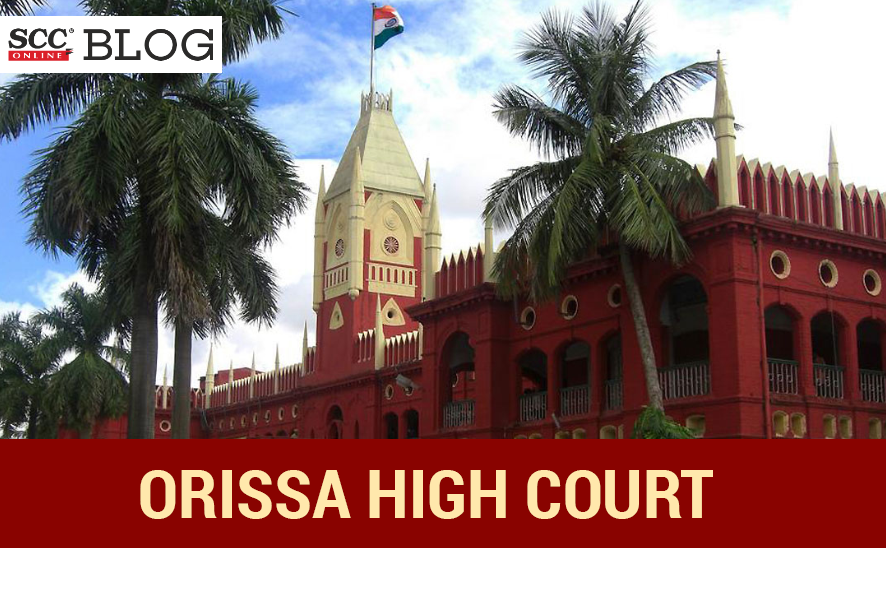Orissa High Court: In a writ petition filed under Article 226 and 227 of the Constitution of India, 1950, by the All Orissa Judicial Employees Association (‘association’), seeking implementation of the recommendations made by Shetty Commission in the State of Odisha (‘respondents’). The Division-Bench of B.R. Sarangi* and M.S. Raman, J.J., allowed the petition and held that the State authorities were acting arbitrarily, unreasonably, and were liable for proceeding under the Contempt of Courts Act, 1971 (‘the Act’).
Background
Pursuant to the directions of the Supreme Court in All India Judges’ Assn. (3) v. Union of India, (2002) 4 SCC 247, the Commission under the Chairmanship of Justice K. Jagannatha Shetty (‘Shetty Commission’), submitted its report, making recommendations to improve the service conditions of the judicial and non-judicial staff working in different Courts. Separate recommendations were given for all the staff of the judicial system in Courts, including the recommendations for the judicial staff in the Courts of State of Odisha.
Thereafter, the Supreme Court passed an order on 07-10-2009, directing the High Courts to implement the recommendations of the Shetty Commission within a period of one year. The petitioner- association filed a representation before the Registrar General, to take steps to implement the Supreme Court’s order. The Deputy Registrar in a letter dated 19-11-2010, directed the District Judges for implementation of the recommendations of the Shetty Commission. However, in spite of this communication, the orders were not complied with.
It was also stated that the 6th revised pay commission was implemented by the State authorities only in favour of State Government employees, discriminating the judicial staff of various Courts in Odisha. Therefore, aggrieved by the inaction of the State of Odisha and District Judges, the association had approached the Court.
Court’s Analysis
The Court noted that during the pendency of this writ petition, most of the recommendations of the Shetty Commission were complied with in the Odisha State. However, there was non-implementation of three recommendations by the State authorities, namely:
-
Bench Clerk Grade-I in the newly created Courts in the Cadre of District Judge from the date of functioning of Courts.
-
Upgradation of the posts of Sheristadar/ Head Clerk, with effect from 21.11.2016, when recommendation/ decision of the Court for up-gradation/ Revision of Grade Pay of the posts of Subordinate Court Sheristadar/ head Clerk of the District Court / Chief Judicial Magistrate Court/ Sub-Divisional Judicial Magistrate Court/ Nazir/ Accountant/ Record Keeper of the District Court was communicated to Government by the learned Registrar.
-
Special Allowance to Drivers.
Further, the Court noted that the State authorities had not implemented the directions given by the Supreme Court in All India Judges’ Assn. (3) v. Union of India (supra), rather different pleas were taken for non-compliance of the recommendations of the Shetty Commission before the Court.
Placing its reliance on V.M. Kurian v. State of Kerala, (2001) 4 SCC 215, wherein, it was observed that, the word ‘recommend’ in the context of the rules, would mean ‘giving of a favourable report opposed to an unfavourable one’, therefore, the recommendation is a statement expressing commendation, or a message of this nature, therefore, the Court viewed that by not implementing the directions in All India Judges’ Assn. (3) v. Union of India (supra) to implement the Shetty Commission, the State authorities acted arbitrarily, unreasonably, their conduct was contumacious, and were liable for proceeding under the Contempt of Courts Act.
The Court also said that there was no objection in extending the benefits of the recommendations made by the Shetty Commission to the subordinate judicial staff, because it is in the interest of the public. If such benefits were extended to them, the long-cherished desire of the members of the petitioner-association would be fulfilled.
Thus, the Court directed the State authorities to implement the three pending recommendations made by the Shetty Commission, within the period of three months from the date of the communication of this judgment.
[All Orissa Judicial Employees Association v. State of Odisha, 2023 SCC OnLine Ori 2030, Decided on 11-04-2023]
*Judgment Authored by: Justice B.R. Sarangi
Advocates who appeared in this case :
For the Petitioner: Senior Advocate Manoj Kumar Mishra, Advocate P.K. Das, Advocate S. Senapati and Advocate T. Mishra;
For the Respondent: Additional Government Advocate A.K. Mishra.






